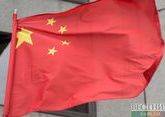With the latest improved numbers, China’s stability bodes well for the continued economic wellbeing of Asia, although risks remain. A slowdown had recently prompted some concerns, but with the latest improvement, the Chinese economy is considered by some to have stabilised. As the Star writes in an article "China’s stability bodes well for Asia", stability in China’s economy, at the very least, will contribute towards economic stability in large swaths of territory in Asia. It is a big buyer of commodities, which benefits Asia unless it turns to commodity producers elsewhere. Chinese capital is also a conduit for liquidity flows, although not via portfolio channels.
China’s gross domestic product growth increased 6.9% in the second quarter from a year earlier, matching the pace of expansion in the first quarter, according to a Bloomberg report. “Asia’s economic success has been largely attributed to its exportoriented strategy. Over the past decade, waning demand from the West has resulted in the rise of intraregional trade, with demand mainly from China. A stabilised Chinese economy would not just benefit exporters, as developing countries can also expect inflows of foreign investment from China. This is especially when China has indicated its ambition to gain political traction in the region,’’ said Thomas Yong, CEO of Fortress Capital. “It points towards a strong fourth quarter as hopes continue for an even better 2018,’’ said Chris Eng, head of research at Etiqa Insurance & Takaful.

“We have not considered the Chinese economy as a major risk and so far, we have been proven right. We still think the risks remain with developed economies that may even trigger the next financial crisis, if it happens. The outstanding risks lie in the aggressiveness of future US Fed interest rate hikes, President Donald Trump’s policies and geopolitical tensions,’’ said Danny Wong, CEO of Areca Capital. “The main risk lies in China’s internal reform efforts, in particular, its corporate deleveraging process,’’ said Yong. The relentless buildup of risks caused by debt-fuelled investment is a development that was addressed by top leaders in Beijing recently. “China has settled into what I would term as a metastable (having a slight margin of stability) state. If it attempts to stimulate its economy again and nudge it into a stronger phase of growth, it could find itself falling into a fresh round of less controllable instability,’’ said Pong. “The setting up of a Cabinet-level committee to detect early signs of financial risk and prevent systemic risks underscores the seriousness of the authorities in keeping a tight rein on excessive leveraging. Sustaining growth and financial stability remain priorities to defuse market concerns on the overreliance on stimulus and credit expansion to support growth. The Government must not lose focus on reining in the country’s rapidly ballooning debt,’’ said Lee Heng Guie, the executive director of Socio Economic Research Center.

That China’s economy has continued to hold steady indicates that the pace of economic restructuring has not tempered the underlying growth momentum, said Lee. “What has been driving growth are selective government support, rapid credit growth and a relatively loose monetary policy. With a strong performance in the first half, China is on track to meet the official growth target of 6.5% for this year,’’ Lee added.
“One of the worries, prior to this stability that we saw in the first half of the year, was the possibility of the devaluation of the reminbi. Such a scenario would be detrimental to regional economies, especially those dependent on exports,’’ said Nor Zahidi Alias, chief economist, Malaysian Rating Corporation.
The stability of financial markets was also on investors’ minds in the first half. “A weaker Chinese economy, for instance, will likely trigger more corporate defaults and the negative sentiment will reverberate across the region, affecting other bond markets. Coupled with the possibility of further rate hikes in the US, such a scenario will likely see global bond markets taking a hit. Therefore, the recent numbers on Chinese economic growth provided a relief to global investors,’’ said Zahidi.
Columnist Yap Leng Kuen notes that despite the robust numbers, it is not smooth sailing all the way for Asia’s major growth engine.










